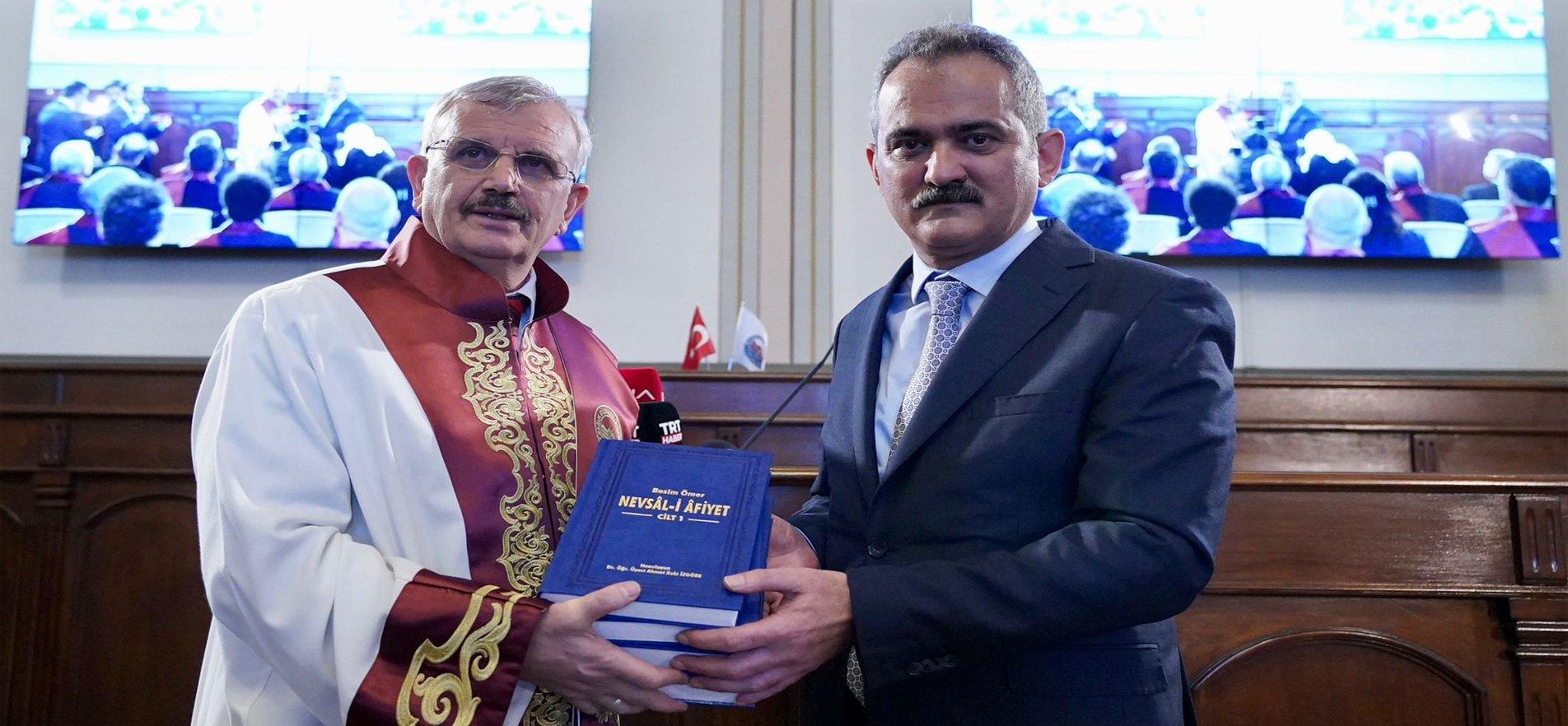Minister of National Education Mahmut Özer began his speech at the opening ceremony organized at the Mekteb-i Tıbbiye-i Şahane Complex by expressing his condolences to those who died during the bomb attack in İstiklal Street in İstanbul and wished quick recovery to those who injured during the incident. He noted that the Republic of Türkiye will continue to walk on its honorable path in solidarity and unity and take firm steps in becoming the sound of oppressed people in the whole world.
Stressing that the most permanent and sustainable capital of a country is its human resources, Özer said, "Due to this reason, all countries in the world are doing everything in their power in order to increase schooling rates in all levels of education and increase their competitiveness. When we take a look at the figures of the 1950s, we see that OECD countries have increased their schooling rates over 90 percent and completed universalization of the education process after World War II."
A silent revolution was achieved in all levels of education in the last twenty years
Özer noted that the situation of education in Türkiye in the 2000s was pathetic adding that, "In 2000s, the schooling rate of five year old children in preschool education was only 11 percent and the schooling rate in secondary education was 44 percent. Net schooling rate in higher education was around 14 percent. At the beginning of 2000s while our schooling rates were lower than 50 percent, we had to compete with countries that increased schooling rates over 90 percent 70 years ago. Due to this reason, we achieved a silent revolution in all levels of education in the last twenty years. We provided equal opportunity to all parts of the country without making any discrimination by carrying out large education campaign. In the 2000s, there were 300 thousand classrooms in our education system and today we have 857 thousand classrooms."
Reminding that there were nearly 74 universities in Türkiye in the 2000s, Minister Özer went on to say that, "Today, we have 209 universities. Twenty years may not be considered a long period in the history of a country but this short period is the time we increase the schooling rate of five year old children from 11 percent to 97 percent. Net schooling rate in secondary education increased from 44 percent to 95 percent today and net schooling rate in higher education increased from 14 percent to 48 percent. In other words, we provided conditions that allow all children of this country to receive education for free."
Özer stated that antidemocratic practices in the past such as headscarf ban and coefficient practice were the barriers in front of higher education and said, "Those who talked about violence targeting women and brain drain today kept silent then. The economy of the country suffered due to these practices and the labor market could not find the employees they needed."
Noting that especially disadvantaged families and women profited most from the transformation of education in the last twenty years, Özer stressed that the schooling rate of female students in secondary education was 39.2 in 2000s and this figure reached 94.66 percent today. Schooling rate of female students in higher education exceeded male students in 2014. There is a similar situation in secondary education. Schooling rate in secondary schools is 99.44 and the rate of female students is higher than male students.
Özer expressed his gratitude to Recep Tayyip Erdoğan for allocating the largest share of budget to education and said that they will continue to act together in order to increase the quality and reinforce equal opportunity in education.
Stating that the Ministry is working in an effort to reinforce all education institutions in all levels of education and continue to work in order to improve the YLSY (Post-graduate education program of the Ministry of National Education) scholarship program.
Türkiye's first biomedical R&D center will be founded as a part of cooperation between the Ministry and the Health Sciences University
Özer stated that he had reached an agreement with the rector of the Health Sciences University Cevdet Erdöl about acting together in biomedical and biotechnology areas while carrying out this development campaign in the vocational education and added, "I would like the opening ceremony as an opportunity to announce that Türkiye's first biomedical R&D center will be founded as a part of cooperation between the Ministry and the Health Sciences University. The Ministry of National Education will allocate 10 million TL for the infrastructure activities of this center. Our wish is to carry out R&D activities, innovative studies with our students and encourage them to get the registration of patents, useful models, brands and designs. They are crucial... We will allocate this budget to the R&D center in order to reinforce this capacity, prevent foreign brand addiction in the biomedical sector and support local production."





























